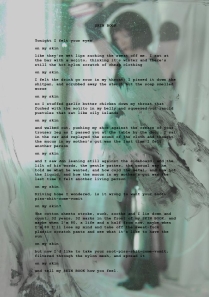This post, by Jodie Renner, originally appeared on the Crime Fiction Collective blog on 12/8/13.
With so many authors self-publishing these days, the best independent editors are in high demand, so if you’re looking for a knowledgeable, experienced professional editor to help you make your fiction manuscript the best it can be – and improve your overall writing skills in the process – be sure to take some care with how you seek out and approach them.
Due to the high volume of requests, sought-after freelance editors turn down many more writer clients than they can accept, so it’s important to make a good first impression.
First, make sure your manuscript isn’t still in rough draft. Try to find time to hone your craft (see my to-the-point editor’s guides to writing compelling fiction), then go over the manuscript a few times to spark up the characters, raise the stakes, add conflict, tension, and intrigue, pick up the pace, and tighten the writing.
Next, do your research and look for editors with good credentials and reviews, who edit mainly fiction and read and edit your specific genre. Google “freelance editors, mysteries” or whatever, or go through an editors’ association like EFA or EAC.
Then read through the editors’ websites to find out about their services, process and requirements. What kinds of problems/issues do they look for? If it’s only grammar and spelling, you can get an English teacher friend to do the same, for a lot less money or even free. To make the most of working with a professional, choose someone who first looks for other, more important possible issues, such as a shaky premise, a boring plot, cardboard characters, confusing viewpoints, stilted dialogue, insufficient tension, inconsistencies, slow pacing, plot holes, info dumps, showing instead of telling, and convoluted or too-formal phrasing.
You need an editor who can ferret out big-picture issues and help you with all the various techniques that, when ignored or botched, can sink a novel, and when flagged and addressed, can turn a mediocre or good novel into a real page-turner that sells and garners great reviews.
Once you’ve determined that the editor is up on current fiction techniques and industry expectations, be sure to read and follow their submission instructions. On my website, for example, I specifically request the following from potential clients: the genre, total word count, first 15-20 pages, 10 pages from somewhere in the middle, a brief synopsis (a few paragraphs to half a page), and a brief description of each of the main characters.
Without this information, I have no idea whether we’d be a good fit and I’d be the best editor for you. I can’t assess the level of work required to bring your manuscript up to industry standards or whether your story would fire my passions so I can give it the zeal and commitment it deserves. Nor can I provide you with an estimate of my fees without doing a sample edit or reading several pages to see what’s involved. The quality of writing and the storytelling skills vary hugely from one manuscript to another, so of course the amount of work (time and effort) – therefore, cost of editing – will also vary hugely.
Here are 10 tips for attracting a top-notch, in-demand editor for your fiction and getting the best possible edit or critique for your manuscript:
Click here to read the rest of the post on the Crime Fiction Collective blog.

